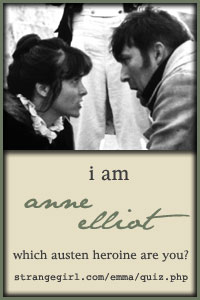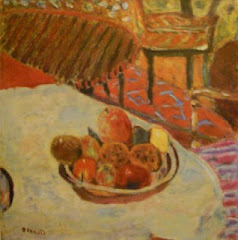Thendara Lane
A ten morning-glory day, the deep purple flowers truly glorying on their wooden trellis climbing the back fence.
The morning glories tell the fortunes of the day ahead for me, I like to think, the way I used to read the auguries of the white doves that sat on the phone lines on the corner where I turned onto Foothill in Los Altos, near the blue-steepled church, each morning on my way to work. Six doves—sixteen—or none. What did that mean, I wondered every day again, as I waited for the light to turn.
__________________________________________
The beginning of a strange new journey, this that they call blogging, sending insubstantial words out into the ether to take their chances there, like fragile less-than-paper boats on an invisible stream.
Once I set type painstakingly—pleasurably—by hand, in the letterpress shop at Mills College, equally conscious of the spaces, the breathing room between letters and words. Writing in those days was substantial as the type: weighty lead, making a tangible impression on the good paper. Laid paper, true as the roads the Romans laid measured and straight between fixed marks, rigor the word, the practice, that took its name from the ancient laying down of roads.
"The gromatici, the Roman equivalent of rod men, placed rods and put down a line called the rigor. As they did not possess anything like a transit, an architect tried to achieve straightness by looking along the rods and commanding the gromatici to move them as required.”
I could run my fingers over the words, like Braille. The letterpress lines were elemental as the ink, whose smell filled the little room along with a country-western station from somewhere in the Central Valley maybe out towards Stockton and Tracy where we’d found a rodeo one weekend, as well as the awareness of spring outside the wooden sash windows wide open to the night, of time passing in steady quarter-hours on the close-by bells of Julia Morgan’s campanile, of yearnings and endings and promises perhaps never to be articulated. Not just a smell, the ink evoked a quiet sound of its own, among those others, the swishing sound of its blackness, wet across the platen, the rubber rollers, muffled as the paper took it, the sound of a printed page coming into being.
One of the poems I printed on the letterpress that spring, my senior year of college, those long-ago nights in the homey room that was the Eucalyptus Press, celebrated the feel of words, the comforting solidity of words.
Poem for an afternoon of no rain, too much coffee, little humor, and frantic telephones
I hunger for the real words.
Words: pithy, strong
as greek olives, as goat cheese.
Words: rounded and rough
as fat river stones
that fill the hollow of the tongue.
Children in the back garden
put pebbles in their mouths
and learn the round syllables,
one by one, tasting of earth.
Children in the back garden
don’t have to know the dry ache
of words without substance,
silly letters perched in crooked rows—
a frenzy of chattering, caged birds.
When the garden has been misplaced,
somewhere among the papers where
all the little black words
have gone to seed, I hunger for some
round, strong, tongue-fulfilling word.
No, in fact, I see, that poem was written two years later, trying to find a room again in which I felt that much at home . . .
After Mills, I thought a time or two of buying a letterpress, a font of type. It would have been more ponderous to move than the piano that has accompanied me from childhood lessons in Santa Fe up the rickety staircase on Forest Avenue into the almost-treehouse and down again ten years later to Parma Way, almost unplayed, and now here uphill to Thendara, holding a fossil fish, a page of sheet music, Chopin, a photo of my parents on a little ship, the Seabird, following Lewis and Clark down the Columbia River. It would have been terribly cumbersome to store, to find room for, to take care of. I might not have used it any more than the childhood piano. But I have felt its loss, from time to time, have wondered what life would have been for a woman with a letterpress, someone willing to take responsibility for carrying the words with her, no matter what. One of so many things I haven’t done.
Things kept changing, though I didn’t want them to. I’ve just gone to Green Library on the Stanford campus to find the poem I remembered that told about the ache twenty-five years ago, when one of the big changes came. (All poems are not, yet, on the internet—but through my motion now this one is set adrift, strangely, unanchored from its old context.)
Back from the Word-Processing Course, I Say to My Old Typewriter
Old friend, you
who were once in the avant-garde,
you of the thick cord
and the battered plug,
the slow and deliberate characters
proportionally spaced, shall we
go on together as before?
Shall we remain married
out of the cold dittos of conviction
and habit? Or should we move on
to some new technology of ease
and embellishment—Should I run off
with her, so much like you when
you were young, my aged Puella
of the battered keys, so lovely
in that bleached light of the first morning?
Old horse,
what will it be like
when the next young fily
comes along? How will I love you,
crate of my practiced strokes,
when she cries out: new new
and asks me to dance again?
Oh plow for now, old boat,
through these familiar waters,
make the tides come in
once more! Concubined love,
take me again into your easy arms,
make this page wild once more
like a lustful sheet! Be wet,
sweet toy, with your old ink:
vibrate those aging hips again
beneath these trembling hands.
Now, ready or not, there is blogging, Twitter, tweeting...and the list goes on. I feel more than slightly baffled by it all. Inadequate, unwilling. So many words out there, somewhere, out of our power and control, we sad old renegades who like to see and feel them on a page, on a piece of watermarked Strathmore paper with its edge left just a little ragged from the bone folder, the motion of gentle tearing, the coaxing out of beauty and hope and sense.
Let me attempt it, though. I’m between trips, today, about to be unsettled again, and torn as ever by what’s here and what’s elsewhere. The new, the distant, always beckons, but there are great rewards in staying put.
We are almost between seasons; I feel the presence of fall, endings again, beyond the summer heat. In Santa Fe we went back to school in mid-August, so this feels like the end of summer to me, though others are still fully in it. I am nesting, trying to settle myself, roasting a chicken rubbed in French sea salt and herbes de Provence. But lured by memories, by yearnings, I went out too to buy pimientos de Padron at the farmers’ market, missing the September days in Mallorca which the peppers evoke. There is always this tension between near and far, in me, between staying still and going out to find new things to say—and ways to say them, ways to bridge the silences.
O brave new world—let us go forth into it bravely!
image: media.photobucket.com































